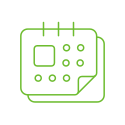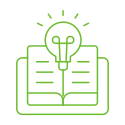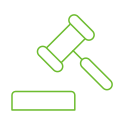Regulations Governing Students’ Academic Conduct Concerning Assessment
- These regulations cover assessments for any degree, diploma, certificate or other academic distinction or award granted by the University. For the purpose of these regulations, assessments include written examinations; written, practical and oral tests; continuous assessment; submission of any form of work; any other means of assessment as specified by the examiners; and any combination of the above.
- A student shall not introduce or cause to be introduced into the place of assessment, or remove or cause to be removed therefrom, any documents, materials, devices and items (including but not limited to printed or written matters, blank writing paper, dictionaries, calculators, mobile phones) save with the express permission of the examiners previously conveyed by the examiners or the Examinations Secretary.
- A student shall answer only on his/her answer book and on any supplementary answer books or sheets or through the platform and in the manner required for the purpose of assessment. He/She shall not mutilate his/her answer book or any supplementary answer books or sheets, and shall not remove them from the place of assessment.
- A student shall not obtain or seek to obtain advantage in the assessment by having or seeking access to unauthorized documents, materials, information, devices or items or by copying or attempting to copy from, or by communicating or attempting to communicate with any unauthorized person in respect of/in connection with any assessment.
- A student shall not impersonate another student, nor shall he/she permit himself/herself to be impersonated in respect of/in connection with any assessment.
- A student shall not engage in plagiarism nor self-plagiarism nor employ nor seek to employ any other unfair means in respect of/in connection with any assessment. Plagiarism is defined as the use of another person’s work (including but not limited to any materials, creations, ideas and data) as if one’s own without due acknowledgement, whether or not such work has been published and regardless of the intent to deceive.
- A student shall not without due authority disclose or cause to be disclosed by whatever means any contents, answers or other information in respect of/in connection with any assessment.
- In conducting research, a student shall not engage in any misconduct which shall include, but not limited to, plagiarism; self-plagiarism, fabrication, falsification; unethical collection or unauthorized use of data; improper ascription of authorship including the listing of authors without their permission, attributing work to others who have not in fact contributed to the research, or the lack of appropriate acknowledgement of work primarily produced by another person; non-disclosure of potential conflict of interest; non-compliance with regulations including conducting research without obtaining relevant ethical approval and infringement of another person’s intellectual property rights; and other practices which seriously deviate from those commonly accepted within the academic community for proposing, conducting or reporting research.1
- A student shall not assist nor attempt to assist another student to infringe these regulations nor to obtain unfair advantage in respect of/in connection with any assessment, including but not limited to provision of any materials, information or other unfair assistance to a student.
1
Without prejudice to the generality of Regulation 8, it should be noted that the University has adopted the Policy on Research Integrity and other related procedures for safeguarding research integrity.


























